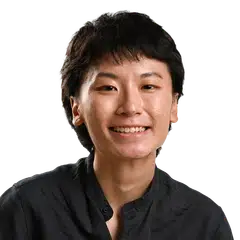Asia-Pacific will need over 230k new pilots, 250k aircraft maintenance technicians by 2042: ICAO chief
Sign up now: Get ST's newsletters delivered to your inbox

ICAO secretary-general Juan Carlos Salazar and Senior Minister of State for Transport Sun Xueling at the inaugural ICAO Asia-Pacific Regional Training Symposium on July 16.
PHOTO: LIANHE ZAOBAO
Follow topic:
- Asia-Pacific needs standardised, scalable, tech-driven aviation training to produce pilots and technicians, addressing a "severe shortage" of regional facilities.
- Regional training hubs, especially in South-east and South Asia, are needed to reduce reliance on schools outside the region, according to Mr Salazar.
- Singapore is rolling out initiatives like a youth aviation programme with ICAO, aiming to build connections and experience in the aviation ecosystem.
AI generated
SINGAPORE – The Asia-Pacific region will require more than 230,000 new pilots and over 250,000 aircraft maintenance technicians by 2042 to fuel the growth of the aviation industry in this part of the world, International Civil Aviation Organisation (ICAO) secretary-general Juan Carlos Salazar said on July 16.
The Asia-Pacific region requires a standardised training ecosystem that is tech-driven and can be scaled up to rapidly produce pilots, technicians and other types of aviation professionals, said Mr Salazar.
He pointed out that the year 2042 roughly marks the time that today’s toddlers will enter university.
Speaking to over 400 industry partners and training experts at the inaugural ICAO Asia-Pacific Regional Training Symposium on July 16, Mr Salazar underscored the importance of jump-starting training to produce the required talent in the region.
At the same time, he outlined the “severe shortage” of training facilities in the region, including pilot training schools, maintenance training centres and air traffic control academies.
“We need to build regional training hubs, particularly in South-east Asia and South Asia, to reduce the dependence on schools outside the region,” added Mr Salazar.
His comments come after Acting Transport Minister Jeffrey Siow said on July 14 that Singapore intends to roll out new programmes
At the symposium, Senior Minister of State for Transport Sun Xueling announced the launch of the Civil Aviation Authority of Singapore’s (CAAS) new training programme, the Asia Pacific Training Awards.
Under the programme, there will be 120 awards set aside for government officials from the civil aviation authorities of Asia-Pacific states to train at the Singapore Aviation Academy.
The academy, the training arm of CAAS, is currently undergoing a $120 million refresh
Ms Sun noted that to date, more than 9,500 fellowships and scholarships have been awarded to industry professionals worldwide through courses conducted by the academy.
She added that Singapore and ICAO launched the first Asia-Pacific Youth for Aviation Programme on July 14, which brought together 36 participants aged 19 to 28 from 19 Asia-Pacific states to visit aviation sites and learn about emerging industry developments.
CAAS noted that these young people will also take part in a dialogue with Mr Salazar and CAAS director-general Han Kok Juan.
“The programme offers a unique platform for young enthusiasts to build connections and experience the interconnected nature of the aviation ecosystem,” said Ms Sun.
Mr Dylan Sim, 23, one of two participants from Singapore, told The Straits Times that he was looking forward to familiarising himself with the aviation industry. He is also eager to see what kind of feedback he gets from Mr Salazar and Mr Han on his group’s presentation on workforce development in the Asia-Pacific.
“Interacting with the youth participants from other countries opens up all our minds to the world of aviation,” said the third-year university student, who specialises in aerospace engineering in his mechanical engineering course.


